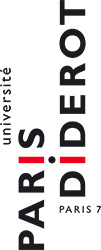Outils pour utilisateurs
Différences
Ci-dessous, les différences entre deux révisions de la page.
|
en:programme [2015/05/26 07:49] nkubler |
en:programme [2021/11/30 02:09] |
||
|---|---|---|---|
| Ligne 1: | Ligne 1: | ||
| - | ====== Programme ====== | ||
| - | |||
| - | ======Claire KRAMSCH====== | ||
| - | |||
| - | **Professor of German and Affiliate Professor of Education | ||
| - | at the University of California at Berkeley** | ||
| - | |||
| - | |||
| - | **APPLIED LINGUISTICS: A THEORY OF THE PRACTICE** | ||
| - | |||
| - | |||
| - | Based on my own understanding of Applied Linguistics, I offer a reflection | ||
| - | on the field not as the application of linguistic theory or any other | ||
| - | theory to the “real-life problem” of language learning and teaching | ||
| - | (Brumfit 1997:93, Knapp 2014) but as the practice of language study itself, | ||
| - | and the theory that could be drawn from that practice. Similarly to what | ||
| - | had oriented Bourdieu towards ethnology (Bourdieu 1990:7), I suggest that | ||
| - | what Applied Linguistics offers language practitioners, be they teachers, | ||
| - | learners, doctors, lawyers, or media experts, is a theory of their | ||
| - | practice. Its object of study is the living process through which living, | ||
| - | embodied speakers shape contexts through their grammars and are, in turn, | ||
| - | shaped by them (Bateson 1979:18). | ||
| - | |||
| - | This does not mean that applied linguists don’t draw inspiration from | ||
| - | theories that have been developed in other fields, such as linguistics, | ||
| - | psychology, sociology or anthropology. But these theories are not | ||
| - | blueprints for explaining the practice and then proffering recommendations | ||
| - | for solving problems in the real world, or even for predicting the success | ||
| - | of certain practices over others. Like any research on complex systems, the | ||
| - | goal of applied linguistic research is twofold: 1) to observe, explain, | ||
| - | analyze and interpret the practice and to communicate the results of its | ||
| - | research to practitioners; 2) to reflect on both the practitioner’s and | ||
| - | the researcher’s practice and to develop a theory of the practice that is | ||
| - | commensurate with its object of study. | ||
| - | |||
| - | My vision for the future of Applied Linguistics focuses on the scientific | ||
| - | advances made in the field and their impact on real-world practice, the | ||
| - | tension between the technical and the symbolic dimensions of the field, the | ||
| - | spread of English around the world, and the increasingly diverse research | ||
| - | cultures in Applied Linguistics. I see three main challenges that Applied | ||
| - | Linguistics will have to deal with in the coming decades: How to situate | ||
| - | Applied Linguistics vis a vis related fields; how to validate the practice | ||
| - | all the while that we are theorizing it; how to envisage a multilingual/ | ||
| - | multicultural Applied Linguistics. | ||
| - | |||

